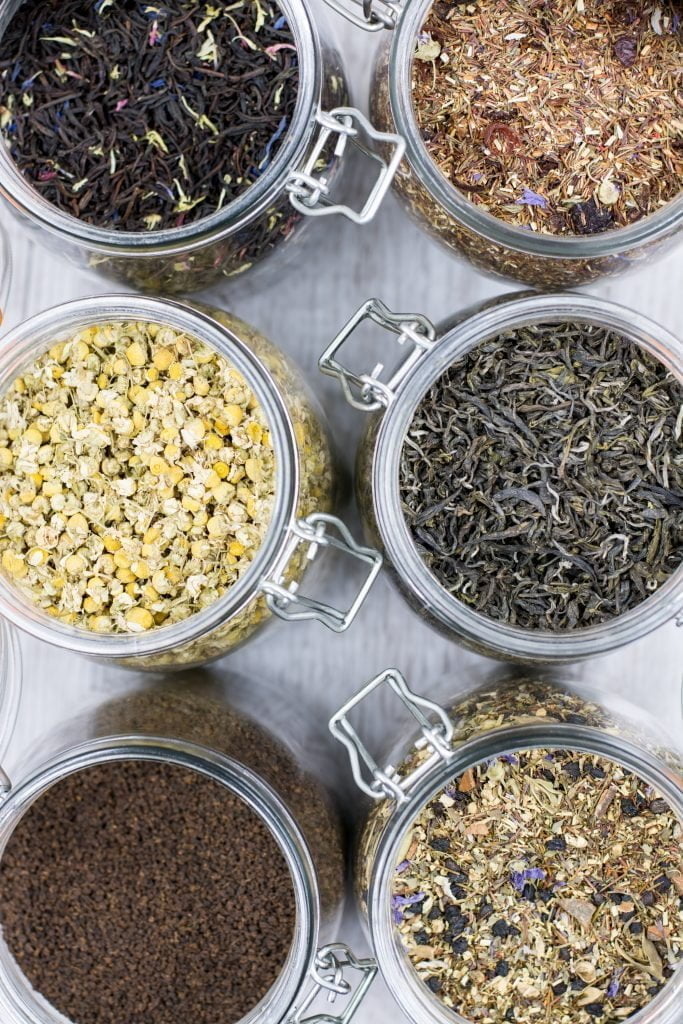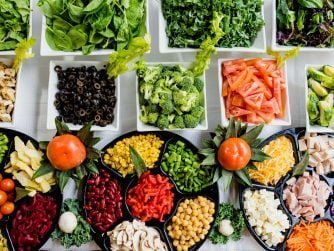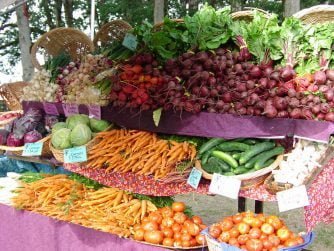Voice 1
Welcome to Spotlight. I’m Liz Waid.
Voice 2
And I’m Adam Navis. Spotlight uses a special English method of broadcasting. It is easier for people to understand, no matter where in the world they live.
Voice 1
A small group of people sit in silence. Their eyes are fixed on the movement of one woman – Sachiko. Sachiko is a small Japanese woman. She wears traditional Japanese clothes – a beautiful kimono. She is busy preparing a green tea. She concentrates on each of her movements. Each movement flows into the next. What is she doing? She is leading, or hosting, a Japanese tea ceremony. Today’s Spotlight is on the Japanese tea ceremony.
Voice 2
In Japan, drinking tea is very popular. Originally, people drank tea as a form of medicine. Soon they drank it because they enjoyed it. At first, black tea was the most popular. But in the 12th century this changed. The people used a different kind of tea – green tea, or ‘matcha’.

Voice 1
Both green and black teas come from the leaves of the Camellia Sinensis plant. People put the plant leaves in the sun to dry them. Black tea is dried in the sun for a longer time. The leaves react with the oxygen in the air and turn black. But to make green tea, people gently steam the leaves before drying. This way the leaves keep their green colour.
Voice 2
The Japanese tea ceremony developed over many years. But during the 16th century the ceremony became an art form called wabi cha. One of the people who influenced this art was the great ‘tea master’ Sen no Rikyu. He believed in the importance of peace, respect, purity and calmness. He combined this simple, everyday part of life with his spiritual beliefs. These are now called, ‘Sado’ – the way of tea.
Voice 1
Sachiko is a young Japanese woman. She has studied the tea ceremony for many years. She describes what the tea ceremony means to her.
Voice 3
‘For me, the tea ceremony is like learning about life, how I live, and how do I see myself in this life. And my tea master will teach me history of the tea ceremony and teach me about movements or flower arrangement or utensil or pottery or any sort of thing. The tea ceremony takes normally about three hours.’
Voice 2
It takes many years to perform the art of a tea ceremony perfectly. Like Sachiko, students do not just learn about tea. They must also learn other traditions – such as Japanese writing and flower organising. At official tea ceremonies, even the people who attend must know some things about ‘Sado’. They must know the right ways to move – such as how to drink the tea. They must know when to speak and what to say.

Voice 1
In most tea ceremonies, a host will invite four people. They are guests of the ceremony. The host’s helper leads these people into a waiting room. The helper offers sayu to drink. This is hot water for tea-making. At the right time, the helper leads the people to the tea room, or chashitsu. This special room is only for tea ceremonies. Tea rooms are usually inside a teahouse. Teahouses are usually outside, in the garden.
Voice 2
Before the host receives her guests she fills the stone basin with water. She washes her hands and mouth. She walks to the middle gate. Here, she welcomes her guests with a bow. No one speaks. The host leads the guests through the gate. Then, they too wash at the stone basin. They are then ready to enter the teahouse.
Voice 1
They enter the teahouse through a sliding door. The door is just under a metre high. Everyone must bow to go through. This is an important act. It is a sign of equality. When people are through the door they become equal. They lose their social position.
Voice 2
The tea room is simple. It usually has a hanging piece of material. This has Japanese writing on it. It may include words that show the values of the tea ceremony – like peace, respect, purity and calmness. The room also usually contains flowers.
Voice 1
The guests bend down on their knees. And they wait for the host to serve them. They leave their worries behind them. They centre their minds only on the room. Hosts may serve the guests sweets called higashi.
Voice 2
The host then organises the tea instruments. She cleans them with water. She dries them with a fine cloth. Then, she places three scoops of tea for each guest into the tea bowl, or chawan. She puts the right amount of water into the chawan. And then she mixes it using a chasen. She needs skill to mix the powdered tea in the correct way – to make it become a thick liquid. Then she bows. She lifts the chawan with her right hand. And she places it on her left hand. She turns the chawan to the right three times, using her right hand.
Voice 1
The host then passes the chawan to one of the guests. He bows and accepts the bowl. After he drinks from it, he cleans the top. Then he passes it to the next guest with his right hand. The guest turns the chawan and drinks from it in the same way. Guests look at the bowl before they drink from it. They see its beauty. During the whole ceremony the host serves the guests.
Voice 2
Each instrument and movement is important in the ceremony. Buddhist theology influences much of these movements, positions and instruments. However, you do not have to be a Buddhist to take part in a tea ceremony. Some people take part in the ceremony simply to enjoy the social gathering. Others take part to enjoy the peace and calmness of the ceremony.

Voice 1
The way of the tea has four main teachings: Wa means harmony or peace. People must try and be at peace with everything in their life – people and nature.
Voice 2
Kei means respect. People must respect everything around them.
Voice 1
Sei means purity. People must try to act purely.
Voice 2
Jaku means peace of mind. It is these values that tea masters spend years trying to learn through sado – way of the tea.
Voice 1
Would you like a Japanese tea ceremony? Are there any ceremonies for food in your culture? You can leave a comment on our website. Or email us at radio@radioenglish.net. You can also comment on Facebook at Facebook.com/spotlightradio.
Voice 2
The writer of this program was Marina Santee. The the United States and the United Kingdom. All quotes were adapted for this program and voiced by Spotlight. You can listen to this program again, and read it, on the internet at www.radioenglish.net. This program is called, ‘Japanese Tea Ceremony’.
Voice 1
Look for our free official app in the Google Play Store and in iTunes. We hope you can join us again for the next Spotlight program. Goodbye.
Question:
Do you drink tea? What is your favorite kind of tea? Write you answer in the comments below?








yes, i drink tea everyday. My favorite kind of tea is green tea!
Yes I do, l like drunk a green tea
yes , I love drink tea so much I drink it all the day . I like all kind of tea an example the black tea with mint or anise tea with lemon .
Yes I do . I like English tea
I do not like tea, but I same time I drink green tea.
I love the tea, I think that the tea is a all ritual in any hours because the tea to invite to the calm and the peace with yourself, with the people, with the environment.
Yes, I drink fresh green tea leaves everyday. I am from Vietnam where tea tree farms are quite numerous. I will clean the fresh tea leaves with water, then i put them into a clay pot, clean the whole pot by pouring hot water in and reject it quickly. At last, hot water will be poured inside and I get ready drinking tea aftet 30 minutes waiting!
i dont like the tea so that i dont like any kind of tea and i like coffee
i don’t like tea, but i love milk tea :v
Would you like a Japanese tea ceremony?
yes why not?
Are there any ceremonies for food in your culture?
i think we dont have any ceremonies.
It is amazing to listen Japanese tea ceremony programme. When I will have tour to there I will become the guests.
Thank you . Bharat patel
oh my god I like it so much I hope to try this ceremony one day
I don’t like tea much, but I like to drink matcha
Yes, I like tea. My favorite tea is black tea. I want to try Japanese tea ceremony. I think is good to control in your angry.
yes,i really like the green tea it makes me feel calm and at peace
i love japanese traditions and i hope to visit japan one day
Yes but I like coffee most.
I do drink tea, it is my favourite time to be peace and quite .
I really enjoy it , it is my custom to drink tea daily
It fresh my mind and also energising me .
I drink different type of tea I mean variety teas ; including green tea, verbal teas, which I have been used to it for ages.
Herbal teas become popular among people around the world these days .
I am not only love Japan’s tea ceremonies but their symbols (or method) of life.
They are people who have been taught , since they are as a child , how to be silent, patient, respect, act purely, harmony and peace with everything around you.
To the best of my belief Japans people and their lifestyle are completely different from around the world which i adore it.
Yes I do . I like black tea and i usually add cardamom or Saffron to it .
Yes i drink tea and my favorite kind is black tea
I drink Black and Green Tea. But in the morning I usually drink Coffee without sugar. I prefer English tea.
Yes i love tea , i drink tea every single day . My favorite kind of tea is a red tea with some of mint it’s so delicious
This sounds very good!
yes i drunk evry day nearly four or five cup of tea
Yes I drink tea every night . I like the green tea
Yes, I love tea, especially tea made from fruits like strawberries, wild berries, raspberries, and loganberries. I would love also mint tea when I want to refresh my mind.
Absolutely I drink tea, my favorite kind of tea is the black tea. But we as hejazi people we drink tea with mint. For me I don’t ever drink tea without mint I think it give the tea a special amazing flavor.
Yes, I drink tea, my favorite tea is Milk tea, usualy I drink it every day but, sometime I don’t have time to drink tea.
yes I do, my favorite kind is red tea with mint
Yes ,i do.
The black tea is the best for me.
Thank you , It’s a good subject .
Yes, I drink tea. My favorite kind of tea is black tea with mint
Of course ! I really like it. I drink it everymorning and that is my favourite .
I drink it twice a day. But i never try the black tea some people around me said that flavor is bitter so i take out of my mind to try it
Cause i don’t like the bitter taste.
I tried the green tea once .It is not bad but after that i didn’t.
Yes, I do. My favorite kind of tea is green tea.
Thank,s for spotlight on this great topic and i love drinking of tea especially in the morning and in each country there are some habits in having the drink ore food
Yes I do , my fav tea is a black tea
I sometimes drink tea. In my family, my parents usually drink fresh green tea. They boil them with water, then they use for all day. So I sometimes drink it. Otherwise, in my country, people use dried tea to drink every day. Especially, when the guests visit, people usually mix hot water with dried tea as a drink to receive the guests. Actually, I don’t like tea because it has an insomniac and if I drink it, it makes me sleepness. But when I go to a drink shop, I always order a matcha yogurt smoothie because I like the smell of matcha. ^_^.
yes i drink tea every day in my favorite glass specially for tea black ted this my favorite
I drink tea latte I don’t like it so much , my favorite kind of tea is black tea
yes, i love drinking tea i can’t believe my life without drinking a cuo of a tea
well genuienly i don’t have a specific type of tea but i think herb tea is the best
Yes I do, I usually drink black tea and somtime thyme and sage tea.
There is no ceremonies for food in my country but I like drink black tea with my family, especially in the winter season it’s makes me happy and feel good
If you ask me “Would you like some tea or coffee?”. I will choose tea. I prefer tea to coffee. I usually drink tea every morning, it keeps me awake to work efficiently and it’s good for my health. When I stress something, I drink tea and listen to music because it makes me feel peaceful. My favorite tea is green tea, it has a lot of heath benefits. Such as eliminates fat from body, improves skin health, …
The Japanese Tea Ceremony is a fascinating experience. I’d heard of it before, but I couldn’t understand exactly what it was about. This course helped me in understanding the practical importance of it. People may live their lives slowly and thoroughly while doing so. For the time being, I have not heard of a formal food ceremony in Vietnamese. I hope that in the future, Viet Nam would have an unique celebration because, in my opinion, it is extremely beneficial to the people. And if it has, I will most certainly join
Yes I do, my favorite kind of tea is black tea I always drink with mint leaves.
Yes I am, black tea my favourite
Yes I am, black tea my favourite l am addicted on it
Yeas I like to drink tea every morning .
My favorite kind of tea is black tea
This is a fantastic and inspiring article. Having a passion for the art of tea ceremony is a cultural feature that I particularly enjoy in Japan, especially when the spirit of the ceremony is expressed through the four words of peace, sanctity, purity, and tranquility. I really want to travel to this beautiful country and learn about the art of tea ceremony because I believe it will provide me with a sense of relaxation, a sense of closeness to nature, and the opportunity to learn many valuable lessons.
Tea is very popular in my country, but people don’t drink tea to feel peace and calmness like the Japanese do, and I like the Japanese because of their traditional drink of tea; sometimes I drink oolong tea, but not in a bowl, so putting in a bottle and making popular, but I still want to drink tea at the Japanese and enjoy the feeling of peace and a little quiet like the Japanese do.
Yes I like tea and drink everyday, but I loved green tea ( matcha) , I don’t my culture used ceremony
With tea, i feel normal and i only eat when i visit to my grandmother or older house. They also drink tea so, when guests come in their home. Maybe i can drink green tea. This is a famous tea pretty in my country.
Thanks for this article helps give me useful information about how I can experience real traditional tea ceremonies without hassle, some of the best places to try and experience the Japanese tea ceremony in Tokyo. I hope I’ll have a great Japanese tea ceremony experience.
I am drinking the black tea , it is the most popular in my country , but there are some of people here are drinking the Doreen tea
I am never trying the green tea and I decided to try it
yes , I love drink tea so much I drink it all the day . I like all kind of tea an example the black tea with mint or anise tea with lemon .
I like a Japanese tea ceremony , i’dont drink tea that much , my favorite tea is Jasmine tea.
I drink tea from time to time I like green tea actually but my family drinks only red tea so I have to drink it with theme think you so much spotlight for these podcasts I really enjoying listening to it I am new learner
I like the black tea, but i did not try the Japanese tea ,i wish to try the Japanese tea,but he dos not exist in our culture.
i am enjoyed with spotlight today, i liked the object.
Yes I do, red tea with fresh mint is my favorite
Although I prefer coffee, tea is a nice drink and sometimes I enjoy the favour of tea.
My favorite tea is green tea
I love tea, my favorite is green tea for China ,I drink tea China since my childhood becose my grand father he love tea China also That’s why I used to drink tea China since i was young
Yes , my favourite kind of tea is red tea
Yes , everyday drink a cup of red tea with mint .
yes i do i drink every morning in breakfast , my favorite black tea .
Yes sure I like tea with milk , I didn’t try black tea and sometimes drinks green tea but it’s not my favorite
Yes l do . I like black tea .
Yes. I drink tea. Actually, I like green tea.
No , I don’t like drinking tea .
Of course I drink tea, it’s also a popular food here in Algeria, almost being the main drink everyday’s afternoon. However, we don’t have a ceremony such as Japan.
Of course I like tea! matcha tea is my favourite tea I drink the matcha in all ways very cold , hot, And with milk .as its a Japanese tea , i started to drink the matcha since i knowun the positive things when it comes to your skin, body , hair, And also it had more caffeine than coffee and last more hours witch means more focusing , more energy.
Yes and a lot.
interested
to be honest i love this ceremony and i like all traditions customs and traditions in Japanese
for me i like green tea make me more peace and calm
in my country the most famous kind of tea is black
In my country drinking black tea after lunch is very popular.
We also add cardamom it give amazing flaver.
Yes, I’m drink. Black tea.
it is very nice ..all of thanks to us
Yes i like drink tea specifically in the morning with the breakfast it is refresh my day >3
It is a good ceremony if people can find peace and harmony with themselves. In our culture, we pray 5 times a day, fast for one month yearly, and pay ZAKAT and this is how we purify ourselves.
Yes i drink tea everyday day , when i don’t i feel like something missing , i like green tea with mint ( Moroccan tea )
Yes I do, and my favorite tea is black tea
Hello,
I like drinking tea but because it tinted my teeth I gave up drinking it.
I practically like all kind of tea and infusion or herbal tea. I also used to drink it because it’s benefits for health such as it has antioxidants, hydrating the body, aids in digestion, prevent diabetes or protect the brain in old age this ones and much more are the advantages of drinking tea